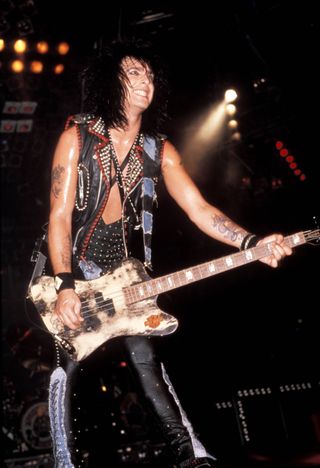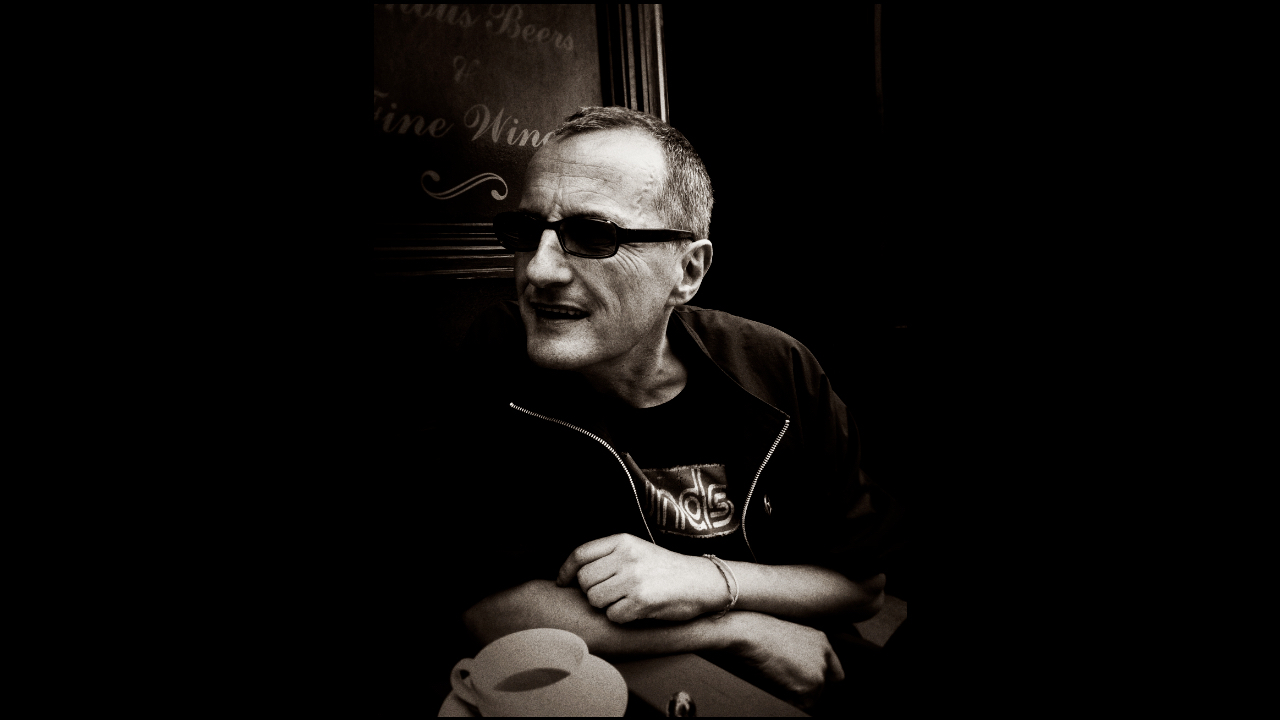The last time this writer spoke to Nikki Sixx was more than 20 years ago, when Mötley Crüe were in Britain touring their Theatre Of Pain album.
Then at the peak of his addiction, and looking frail and inelegantly wasted, he thirstily chugged at a bottle of Jack Daniel’s, which he consumed over the course of a 30-minute interview.
Entertaining yet disconnected, he had that detached air of a pretty and vacant LA muso. Between each question he kept asking where he could score some heroin. You could see that Nikki was in a bad way – alcohol and heroin are a lethal mix.
Nowadays Nikki presents a polar opposite of his former bad-boy self. He talks with the zeal and fervour of someone who has been born again. And when I remind him of our first encounter you can almost hear a palpable shudder in his voice. “Yeah, dude, I was on a downward spiral,” he recalls with a nervous laugh. “And believe me, it got much worse.”
What prompted you to write The Heroin Diaries after Mötley Crüe’s The Dirt?
There are a few different reasons. One is that I wanted to draw attention to addiction and try and paint a success story at the end of it of it. The other is that I can raise awareness for a charity that I’m involved in called Covenant House, and Running Wild In The Night, which is a music programme in there. It felt like a nice closure to a time in my life as well.
So it’s not Son Of The Dirt?
No, it’s nothing like The Dirt. It’s about my relationship with pen and paper. That stream-of-consciousness of honesty, or even dishonesty. The reason that journals and diaries have locks on them is because no one is supposed to read them. They’re private. So I wanted to open up that very private moment and then have people – the band mates, other musicians, record company executives, ex-girlfriends, my mother, my grandfather, my sister – come in on top of my stuff and tell the complete story. Because yes, it’s set in ’86/’87, but how did we get there? That’s the question.Well, I guess I really had to peel the onion to see that in this book.
Did you keep diaries before the period documented in the book?
I’ve kept diaries forever and I still do.

Why do you think the public are so fascinated by drugs and addiction?
I think it’s the same fascination they have with anything destructive. Most people don’t live the way we chose to live, or die, however you want to describe it. So through us is probably as close as they can get. They probably don’t want to get any closer.
Do you look back on your life and see that you were an addict waiting happen?
Absolutely! It fits like a glove. I’m like a cliché for drug addiction: dysfunctional childhood, angry teenager, no type of parental role models. And what you do is say: “Well Keith Richards’s looks like a pretty good role model, and so does Johnny Thunders.” And the next thing you know you’ve become that person.
Are you saying that you took heroin to emulate your role models?
Sure. But, y’know, I think it all starts out as: “Hey, I’m going to check this out, I’m going to try it.” And it’s the greatest painkiller in the world. So if you’re in pain and it’s from unresolved issues, it’s a pretty fucking wonderful thing until the monkey gets on your back and you can’t get it off.
The book includes feedback from various people, but what stands out is your sister’s overview, which is brutally honest about the relationship between you and her feelings about your behaviour.
I think it was an important part of the story for everyone to be able to voice what it was like at that time. For me, it’s not who I am now, so it doesn’t really feel bad to me. I feel bad for them, that they had to live through that. But that’s not who I am today, and that’s not what my relationship with them is like today. But it was an important part of the story to see where addiction takes you in all your relationships. My band was degenerating, my personal life, my health, my sanity… That’s where it goes.
Is there any part of the book that particularly moved you?
By reading the overview of everything, especially from my family, for me it’s very clear why I was so fucked up. Nobody can agree about what my childhood was about. I don’t know what happened to my dad; I don’t know what happened with my mum. All I know is that I woke up one day and I was a pissed-off teenager. And when you ask them everybody has a different story.
The Crüe have always been associated with sex, drugs and debauchery. Did you ever worry that you might lose your mojo when you got clean?
No. If anything I think you can look, smell, taste and be rock’n’roll, and be better than you were. I’m more creative now than I was then.

What was you personal rock bottom?
I think I had many. When I first quit heroin I went to alcohol and cocaine harder. Then I was sober around Dr Feelgood [1989], as were the band, and we worked very well together and made amazing music. And that just proves to me that having a clear head is better for creativity. And then about six years ago I slipped with alcohol and cocaine, and we wrote a song about it called Accidents Can Happen. Because relapse can happen to you, but you don’t have to stay there.
You documented your relapse candidly in your blog. What were the circumstances that led you to using drugs again?
Any time that you have unresolved issues you’re putting your foot in a rattlesnake pit if you’re an addict. I’m constantly trying to peel and unravel this onion as a human being. I’m not so unique, I’m not really different to you or anybody else. I’m a human being and I make music. You write about music, some people listen to music. I’m just another guy, but I realise that I have the ability to put something out there and show a truth, and maybe that will help somebody.
Your using seemed suicidal at times.
I really felt no connection with anybody or anything on the planet. I was happy to be gone; it just didn’t matter to me. So now to be positive and full of life I feel really lucky and really grateful. It’s a good time.
Do you ever miss taking drugs, drinking and generally getting wasted?
No, absolutely not. There’s nothing to miss.
Did you feel you had to make radical lifestyle changes when you stopped taking drugs?
Not really. I didn’t feel I had to give up music, but I definitely had to give up these people that some would call my friends. I had to have a major social shift, and I moved to a new home and started over.
When you got clean did you find other addictions taking the place of the drugs?
Sure, but healthy ones. I’m addicted to photography, I’m really into being healthy, even though I smoke so that’s a contradiction. I’m really passionate about being a good parent trying not to recreate anything from my childhood, that could affect my children. I’m more passionate about music.
What kind of response are you looking for with The Heroin Diaries?
I’m just laying the truth out there, and you can take it any way you want it. I’m not a preacher and I’m not beating anybody over the head with my style choices. I’m just telling you my story – this is my experience. And if you take something from it, great. And if you buy the book and you don’t take anything from it, that’s really cool too because then I get money that I can give to the charity.
Does Nikki Sixx have anything else to declare?
Only that I’m sober and I’m happy being sober. I like it and I like who I am. I like that I’m very lucid and clear. I don’t want to live in that haze any more. I don’t feel like there’s a hole in my stomach that needs to be filled. I feel that I’m in a great position to help other people. In the end I feel very grateful that I’ve gotten so many gifts in my life; to be able to make music, have wonderful kids and be surrounded by some fantastic people. So if I can give back a little bit, that’s the least I can do.
This article originally appeared in Classic Rock #110.
For more on Sixx: AM and their latest album, then click on the link below.


